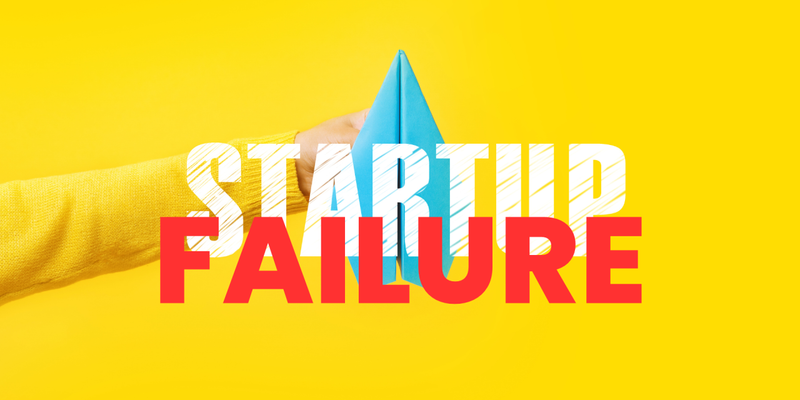Copyright yourstory

In India, entrepreneurship is full of excitement and challenges. There are drastic ups and downs, where failure is just as common as success. While the rosy stories of big startups like Zomato, Zerodha, Swiggy, Flipkart, and OYO dominate urban India, it’s important to remember that every entrepreneur has faced failure at some point in the cycle. But how they respond to failure matters. Instead of seeing failure as the end, successful entrepreneurs view it as a learning process. In India, where entrepreneurship is booming, embracing failure is critical. If you are an emerging entrepreneur or someone looking to step into the world of business, understanding that failure isn’t the end, but rather a beginning, will change how you approach your personal and professional journey. Also, the failure is not something to be ashamed of, and startup founders should realise the fact as early as possible in their entrepreneurial journey. It is true that no one gets everything right on the first instance, and every entrepreneur has stuttered before reaching the success ladder. Take Ritesh Agarwal, the founder of OYO, who revolutionised the hospitality sector. Before OYO became a multi-billion-dollar company, the founder was rejected multiple times, but he didn’t give up. He understood the failures and improvised the platform, customer experience, and eventually created one of the largest hospitality chains in India and abroad. Once you start accepting failures and learn from them, you will stop fearing them. Instead, those instances will become a motivational force that drives you to experiment with new things and innovate. Resilience is the key In India, there is no doubt that the competition is fierce and resources are scarce, but resilience is essential for every entrepreneur. Being able to get back on your feet after a failure is what will keep you going when things don’t go as planned. Women entrepreneurs faced even greater scrutiny in the male-dominated startup ecosystem two decades back, and they still do. Kiran Mazumdar-Shaw, the founder of Biocon, faced immense challenges while building India’s largest biopharmaceutical company. She was often discouraged by people who didn’t believe in her ideas. But she didn’t let those failures define her. Instead, she turned them into a global company. Entrepreneurs need to remember that resilience isn’t just about working harder; it’s about working smarter and realising what didn’t work. India’s market is constantly changing. Consumer behaviour, trends, and demands evolve, and what worked yesterday may not work today. This makes adaptability a must-have quality for any entrepreneur. Rather than sticking to one approach after facing a failure, the successful entrepreneur knows when to pause and reflect and try something different. Elon Musk’s successful ventures like SpaceX and Tesla offer another powerful example. He had faced repeated failures with his companies, from SpaceX rockets blowing up to Tesla’s production issues. Yet he was able to adapt, learn, and iterate. Today, SpaceX is sending rockets to space, and Tesla is changing the world of electric vehicles. In India, if your product or service fails to gain traction, don’t hesitate to change direction, redirect your approach, or focus on a new target audience. The ability to adapt quickly and intelligently in the face of failure can make a real difference. Don’t do it alone India’s entrepreneurial ecosystem is huge. One of the greatest resources available to entrepreneurs is building a support network system around them. Whether it's family, friends, or mentors, a strong support system can make all the difference when you face setbacks. Entrepreneurship can be a lonely road, but it doesn’t have to be. Many successful Indian entrepreneurs received guidance and mentorships, which played a significant role in their success. They also see an opportunity in the middle of a crisis. With regards to Zomato’s acquisition of Blinkit, Zomato saw a growing trend in hyperlocal deliveries like groceries and decided to acquire Blinkit to expand into the market. Blinkit had faced operational challenges, but Zomato saw an opportunity to enter a new market and strengthen its position. People should be afraid to reassess their business model and explore new ideas if the current one isn’t working. The most successful entrepreneurs are those who are not committed to their ideas but are willing to adapt and innovate when needed. So, when faced with failure, learn from it and keep moving ahead. (Murali Bukkapatnam, Chair of TiE Global Board of Trustees, is an entrepreneur, investor, and leader.) (Edited by Kanishk Singh) (Disclaimer: The views and opinions expressed in this article are those of the author and do not necessarily reflect the views of YourStory.)



